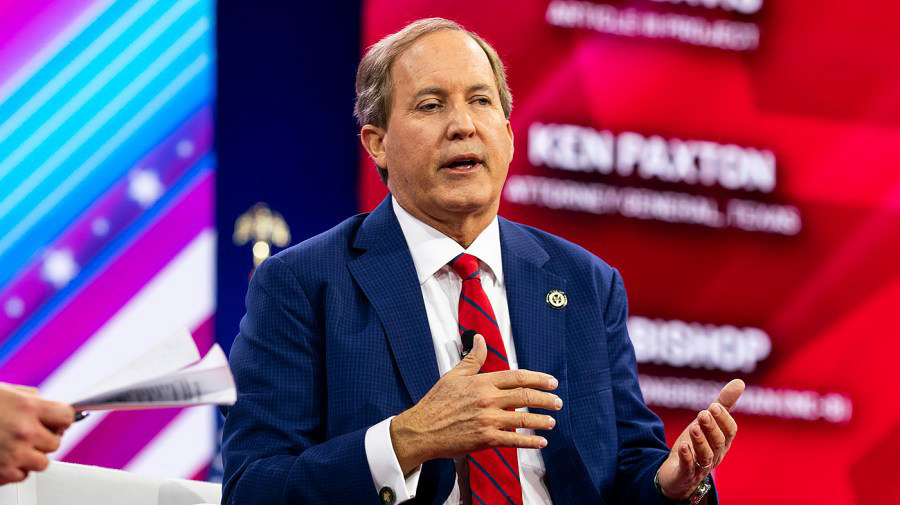Texas AG Challenges Biden Administration’s Expanded Title IX Protections
Texas AG Challenges Biden’s Title IX Expansion
The Biden administration’s extended Title IX protections are making waves, and Texas Attorney General Ken Paxton is right in the thick of the debate. Title IX, a federal law that prohibits discrimination based on sex in educational institutions, has been at the center of discussions surrounding transgender rights, particularly in schools. Recently, the Biden administration has reformulated its approach to include broader protections for transgender students, which has ignited significant pushback from various states, most notably Texas. In this article, we’ll delve into the intricacies of this legal battle, explore the implications, and examine the broader context surrounding the conversation on gender identity in education.
What’s the Buzz About Title IX?
Title IX was enacted in 1972 and was designed to ensure that individuals, regardless of their sex, have equal opportunities in education. Traditionally, Title IX has addressed issues such as sexual harassment and discrimination in schools and colleges. However, as societal understanding of gender identity has evolved, so too has the interpretation of Title IX.
In June 2021, the Biden administration issued new guidelines that suggested Title IX protections extend to transgender students. These guidelines indicate that schools must allow students to participate in sports and access bathrooms consistent with their gender identity. This expansion aims to create a safer and more inclusive environment for all students. But while some see this as a necessary step toward equality, others argue it poses a threat to women’s sports and raises fairness concerns.
Texas AG Ken Paxton’s Legal Challenge
Enter Texas Attorney General Ken Paxton, who has become an outspoken critic of the Biden administration’s expanded Title IX protections. In August 2021, Paxton filed a lawsuit against the Department of Education and the Biden administration, claiming that the new guidelines violate existing state laws and could result in the misappropriation of funds for Texas schools that do not comply.
Why the Opposition?
So, what’s stirring the pot for Paxton and many other state officials? Here are a few key points driving the opposition:
-
Fairness in Sports: Many critics argue that allowing transgender women to compete against cisgender women in sports creates an uneven playing field, potentially undermining the achievements of female athletes.
-
Privacy Concerns: Opponents worry about the implications of allowing transgender students access to facilities that align with their gender identity. Concerns about privacy in bathrooms and locker rooms often pop up in classroom debates, stirring strong opinions on both sides.
-
State Rights vs. Federal Overreach: Paxton and others argue that the Biden administration’s policies infringe upon state rights, with many advocating for local control over educational policies rather than federal mandates.
The Lawsuit’s Components
Paxton’s lawsuit contains several allegations, including:
-
Lack of Authority: The suit claims that the Biden administration has overstepped its legal authority by revising the interpretation of Title IX without congressional approval.
-
Breach of State Laws: The lawsuit alleges that the Title IX guidelines conflict with Texas’s existing laws, which prohibit biological males from competing in women’s sports.
-
Fund Allocation Risks: If Texas schools fail to comply with federal guidelines and subsequently lose federal funding, taxpayers would bear the brunt of the financial repercussions, according to Paxton.
The Broader Implications
As we unpack Paxton’s lawsuit against the Biden administration, we can’t ignore the larger implications this case might have on the educational landscape across the United States.
Potential Effects on Students
The legal battle might ultimately change how schools navigate issues involving transgender students. Here are some possible outcomes:
-
Inclusive or Exclusive Policies? Depending on the court ruling and subsequent laws, schools might have to choose between creating inclusive environments for transgender students and adhering to state laws that seek to limit their rights.
-
Stress for Students and Educators: Amidst administrative shifts, students could face uncertainty and stress regarding their eligibility for sports and access to gender-appropriate facilities. Similarly, educators may find themselves caught in the crossfire, unsure of how to implement policies and protect their students.
National Dialogue on Discrimination
This legal feud has sparked a national dialogue about the rights of transgender individuals and their place in society. The discussion around Title IX may pave the way for more legislative action at both state and federal levels. Here’s how:
-
Legislative Changes: We could see more states following Texas’s lead in challenging federal educational directives, potentially leading to a patchwork of policies across the country.
-
Heightened Awareness: Regardless of the outcome, the debate has certainly increased awareness regarding gender identity and the barriers transgender individuals face. It might even prompt schools to become more conscientious in addressing discriminatory practices.
The Ripple Effect on Future Generations
This isn’t merely a legal tussle; the outcome of the Texas AG vs. Biden administration clash over Title IX could shape the future of rights, opportunities, and school dynamics for generations to come. How these cases are decided could set important precedents regarding how schools handle discrimination complaints and manage student participation in sports and activities.
Conclusion
The challenge posed by Texas AG Ken Paxton against the Biden administration’s expanded Title IX protections is not just a matter of legalities; it’s a representation of a larger cultural and political battle. While some advocate for increased protections for transgender students, others raise legitimate concerns regarding fairness, privacy, and state authority. This ongoing legal saga presents an opportunity for dialogue, reflective adjustments in educational policies, and perhaps a reimagining of how society views gender and equality in the context of education. No matter the outcome, one thing is certain: this conversation will continue to unfold and demand our attention as we grapple with these critical issues.
FAQs
1. What is Title IX?
Title IX is a federal law that prohibits discrimination based on sex in educational institutions, ensuring equal opportunities for all students.
2. How has the Biden administration expanded Title IX?
The Biden administration has interpreted Title IX protections to include transgender students, allowing them to participate in sports and access facilities aligned with their gender identity.
3. What are the main concerns regarding the expansion of Title IX protections?
Key concerns include fairness in sports, privacy in shared facilities, and whether the federal government is exceeding its authority over state educational policies.
4. What is the current status of the Texas AG’s lawsuit?
The lawsuit filed by Texas AG Ken Paxton is ongoing, and its implications could significantly impact how schools across the United States address transgender rights and Title IX compliance.
5. How might this legal battle affect students?
Depending on the outcomes, students could face changes in policy that either support or limit their rights, potentially leading to increased stress and confusion around their participation in school activities.







